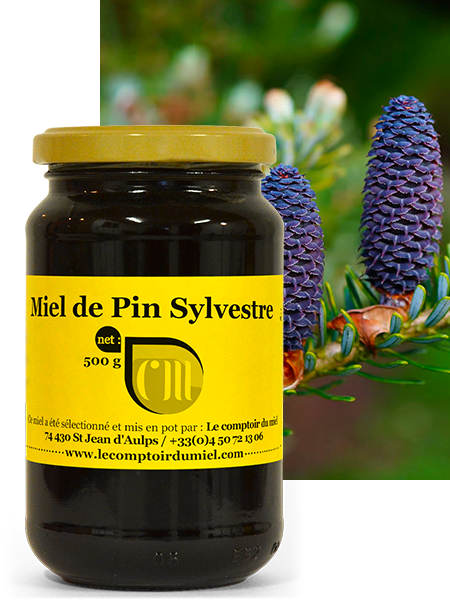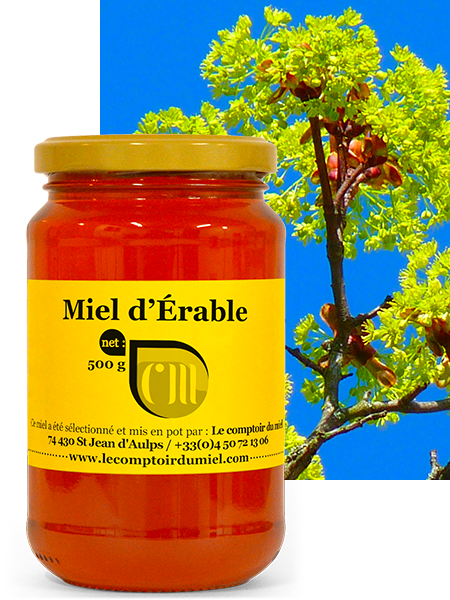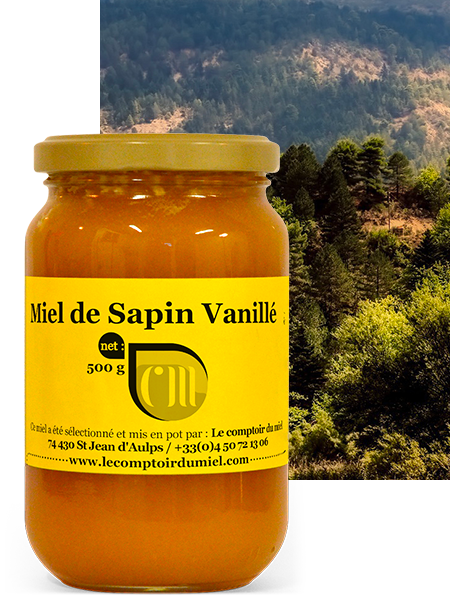We offer this fragrant, delicious and unusual Scots pine honey, produced in the temple of Eros, the Greek god of love: Greece.
Our pine honey from the south-eastern Peloponnese is an exceptional honey and one of our unusual honeys .
The Peloponnese (island of Pelops) is a peninsular land of choice, home to ancient sites such as the sanctuary of Olympia and the ancient city of Sparta, rival of Athens. A land of mythology, Greece is nonetheless an earthly paradise that thrives without GMOs: beekeeping is a trans-generational skill.
The pine grown on these lands is an evergreen, monoecious tree with a long ripening period. Pine cones need 2 to 3 years to mature.
Pine itself has many properties:
Firstly, the branches and stems of the pine provide a resin resin with antiseptic properties used for the respiratory respiratory tract. Secondly, its seeds produce an essential oil that facilitates breathing. They are also recommended for bronchitis and urinary tract infections. In short, don’t miss out on this marvel!
Our Greek beekeeper works in an artisanal way, and his apiary benefits from a privileged land and wild environment, the bees have a very low mortality rate.
This blend of soil and authentic craftsmanship gives a delicious taste to our pine honey, harvested in a splendid Balkan and Aegean setting.
The taste and flavour of Scots pine honey:
Liquid and black, Scots pine honey is highly aromatic and powerful. Highly concentrated, it has an aroma of pine nuts and resin. It’s sure to appeal to lovers of strong honeys and honeydew.
The benefits of pine honey :
Pine honey is said to have soothing and calming properties. In this case, we can only recommend it! Like many honeydews, it is rich in tannin. It also contains polyphenols, which are good for our arteries! Above all, it’s an excellent cough suppressant and is recommended for bronchial tubes and respiratory tracts. Just like its counterpart, fir or vanilla fir.
Did you know?
Gourmets and convinced of the benefits of honey, the Greeks are the world’s leading honey consumers, with 1.7 kilos per person per year. By contrast, Americans consume 0.400g per person! This is, of course, according to a study carried out by the Beekeeping Department of the Athens University of Agronomy!


